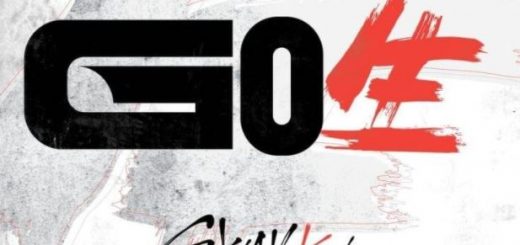M.I.A. by STRAY KIDS Lyrics Meaning – The Exploration of Growth and Lost Innocence
Lyrics
누가 봐도 어색해 뭔가 너무 복잡해
넌 몰라 몰라 알고 있는 것 같지만
뭔가 달라 달라 네 주변을 잘 찾아봐
웃으면서 갔던 놀이공원에서
많은 추억도 쌓고 그랬는데
뭔가 변했어 something change
옛날에 나의 추억은 시간이 멈춰버린 Neverland
Aye 뭔가 예전엔
사소한 것까지 말했었던 너였었는데 멀어진 느낌
몰라 왜 이래
오히려 내가 묻고 싶은 질문이야 뭔가 좀 달라진 듯이
나쁘진 않은데 어색해 너를 볼 때 뭔가
네가 아닌 듯해 예전에 네가
그리워 지려 해 벌써
변한 네 모습 적응 안돼서
어딘가 달라지고 있어
아무리 숨겨도 다 볼 수 있는 걸
다른 사람과 얘기를 하는 것 같아
어색해져 너와 있을 때
대체 어딜 간 거야 너의 그 예쁜 미소
워낙 잘 웃던 너라서 더 그리워져
내겐 다 보여 안 그런 척 어색한 미소
밝았던 너라 더 걱정이 돼
(Hey) 널 보고 싶어 (yeah) 널 보고 싶어 (yeah)
행복한 입이 귀에 걸린 널
꼭 볼 수 있어 난 볼 수 있어
내가 알던 너 다운 밝은 모습
또 뭔 생각했니
멍 때리는 그 모습 요즘 따라 자주 보이는 듯해
Yeah 내 말 듣긴 했니
너 답지 않은 그 모습 지친 내 눈에만 보이는 듯해
어릴 적 너의 단순함이 불과 몇 년 사이에
복잡함으로 폭풍성장해서 널 괴롭히네
좀 더 맘 편히 잡생각 내려놔
그냥 너 걱정돼서 한 말이야 왜 또 째려봐
그런 표정으로 어두운 표정으로 그런 표정으로 쳐다보지 마 (쳐다보지 마)
그런 표정 지으면 답이 나오나
널 보는 게 두려워지기 싫어
너의 눈을 피하기도 싫어
그니까 끄집어내 보자 좋은 날
어딘가 달라지고 있어
아무리 숨겨도 다 볼 수 있는 걸
다른 사람과 얘기를 하는 것 같아
어색해져 너와 있을 때
Ay 잃어버린 날들을 찾고 싶어
Ay 달라진 그 모습 바꾸고 싶어
그 말투와 행동 하나하나 달라진 많은 태도
그전엔 어땠는지 생각도 안나 tell me 넌 어땠는지도 다 알고 싶어
시간 지나 가며 변했던 모습
너도 알며 모른척했을지도
Tell me what you want baby
Tell me what you want baby
다시 널 보고 싶어
대체 어딜 간 거야 너의 그 예쁜 미소
워낙 잘 웃던 너라서 더 그리워져
내겐 다 보여 안 그런 척 어색한 미소
밝았던 너라 더 걱정이 돼 (hey)
널 보고 싶어 (yeah) 널 보고 싶어 (yeah)
행복한 입이 귀에 걸린 널
꼭 볼 수 있어 (yeah) 난 볼 수 있어
내가 알던 너 다운 밝은 모습 (모습, 모습)
In a feat of expressive vulnerability, Stray Kids’ M.I.A. delves into the transformative journey of seeing someone you care about grow distant, their laughter no longer as spontaneous as it once was, their smile veiled with a kind of alienation. The song is a poignant exploration of the changes in personality and demeanor that come with life’s pressures, the inevitable ‘losing oneself’ in the ruthless passage of time.
With a blend of emotive vocals and piercing rap verses, the piece becomes a raw and powerful plea for the return of a known, missed essence. But beneath the layers of heightened sentiment and melodic intensity lies a deeper cognition about the impermanence of human connections and the sorrow of witnessing personal evolution in ourselves and others.
An Odyssey of Emotional Disconnection
Stray Kids encapsulate the bewildering sense of observing someone’s transformation to the point where they become almost unrecognizable. ‘어딘가 달라지고 있어,’ M.I.A.’s chorus reflects, a clear indication of the internal turmoil that arises from seeing a person you thought you fully comprehended become a stranger. The idea is universal and searingly relatable, making the song a mirror into the listener’s own experiences of relationship drifts.
The song is not just narrative; it is a window into the complexities of human relationships, the ebb and flow of connecting and falling away from each other. We commonly struggle with change—whether within ourselves or in others—and M.I.A. acts as a melodic counselor, guiding us through the maze of such experiences.
The Evocative Power of Memory and Nostalgia
In ‘옛날에 나의 추억은 시간이 멈춰버린 Neverland,’ Stray Kids invoke the notion of nostalgia as a Neverland, a place where time stands still amidst an ever-changing reality. This line isn’t just a throwaway; it is a profound expression of longing for a simpler, more carefree time when relationships seemed to have a clarity now lost.
The song deftly utilizes the power of nostalgia, pulling the listeners into a reflective state over moments long gone. It is a testament to how the past holds an idyllic image, threatened consistently by the present’s complexities as personalities and relationships mature and evolve.
Searching for a Lost Smile In an Overcast World
The recurring mention of a lost smile is a poetic throughline in M.I.A.: ‘대체 어딜 간 거야 너의 그 예쁜 미소.’ It becomes a symbol of innocence and the purity of earlier connections. As the artists pine for the return of this simple happiness, they articulate a deep-seated fear we all share—the fear that the lightness of being we once experienced with someone is forever lost.
‘워낙 잘 웃던 너라서 더 그리워져,’ they sing, a line that cuts to the quick. The very element that once defined someone—their easy smile—now serves as a poignant marker of what’s been left behind.
The Unspoken Conversation: M.I.A.’s Hidden Meanings
Beneath the overt message of M.I.A., there lurks a nuanced conversation about identity and individuality. The song could very well be an internal dialogue, where the ‘you’ is a former self that one no longer recognizes. This layering of meanings offers a multifaceted interpretation of the song, suggesting it is as much about interpersonal relationships as it is about intrapersonal dynamics.
In lyrics like ‘너 답지 않은 그 모습 지친 내 눈에만 보이는 듯해,’ the song hints at the secret struggle of maintaining one’s essence while the external world imposes change. It’s not just the person who’s changed that is at the core of this song—it’s also the observing self, resistant yet reluctantly accepting of this evolution.
Memorable Lines that Echo in Eternity
‘Ay 잃어버린 날들을 찾고 싶어,’ the yearning to reclaim what’s been lost continues to resonate long after the song ends. It captures the essence of being caught between the past and present, a shout into the void for time to rewind or stand still. Each line of M.I.A. is soaked in the rawness of honest emotion, etching the song’s melody and message into the memory of anyone who listens.
In a world where moving on and letting go is often celebrated, M.I.A. offers an alternative stance—fighting to remember and revive the past’s simplicities. In that sense, the song is not just a track but a testament to the human spirit’s relentless quest to hold onto what feels authentic and true in a rapidly changing world.








